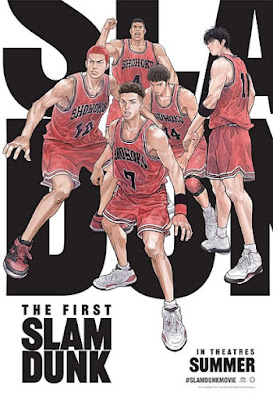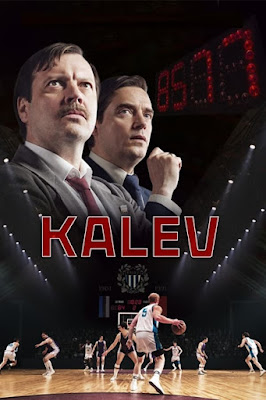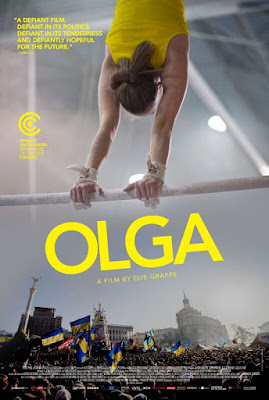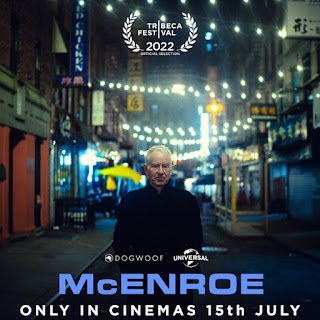It
takes a brave man to star in an arm-wrestling movie after the face-plant that
was Over the Top. Ladies and gentlemen,
that man is Don Lee (Ma Dong-seok). He is the one who brawled his way through a
train car of zombies in Train to Busan.
Believe it or not, his character even references the notorious Sylvester
Stallone bomb as his inspiration. Yet, Lee manages to surpass his role model in
Kim Yong-wan’s unabashedly earnest family sports drama Champion (trailer
here),
which opens this Friday in New York.
“Mark”
Baek Seung-min is big, but shy. He had a hard time of things during his
formative years, so it is understandable. His desperately poor Korean mother
gave him up for adoption, but his American foster parents died shortly after
his arrival in the States, leaving him essentially on his own. Inspired by Over the Top, arm-wrestling became his
only passion, but his professional career was cut short in America by a dubious
scandal. His only friend, the sleazy (but possibly decent way deep down) Jin-ki
has lured him back to Korea with the promise of managing his professional comeback.
To
sweeten the deal, Jin-ki also offers up the address of Baek’s birth-mother, but
the arm-wrestler soon learns she has recently passed away from cancer. However,
he discovers he has a sister (Su-jin), a niece, and a nephew he never knew of. Suddenly,
they have someone to chase away the mobbed-up bill collectors and fix things
around the apartment, while Baek finally starts to feel a sense of belonging. Of
course, his refusal to throw matches at the behest of a crooked sponsor will
probably lead to trouble down the line, especially when the scummy sports
bettors recruit Punch, a steroid-juicing, psychotic former contender to be
their standard bearer, straight out of prison.
Lee,
who was born in Korea, but grew up in America, graduating from Columbia State
University, clearly understands where his character is coming from. He is
acutely earnest as Baek, but he also looks like he could rip Stallone’s arm
off. It is easy to see why he has already reached a significant level of
stardom in Korea and is poised to do the same internationally when you see him
interacting with Ok Ye-rin and Choi Seung-hoon, the young, ridiculously cute thesps
playing his niece and nephew. The fact that he is not dramatically up-staged by
them, pretty much says it all.

Lee
also shares some nice chemistry with Han Ye-ri’s Su-jin and turns some rewarding
third act scenes with Kwon Yool’s heretofore annoying Jin-ki. Unfortunately, Yang
Hyun-min and Lee Kyoo-ho make rather generic villains, who really are not very
enterprising. Plus, Kim’s screenplay manufactures a lot of bogus drama that
starts to try our patience. Yet, we can’t help rooting for Baek and his potential
new family, because they all look so good together.
So,
to recap, if you need a sensitive hulk, Don Lee is your man. As good old
Lincoln Hawk says: “The world meets nobody halfway. When you want something,
you gotta take it.” To that end, Lee carries this film and thereby grabs
leading man status. Nobody should have any illusions—Champion is shamelessly manipulative and sentimental, but it is an
indomitable crowd pleaser—with distinctly Korean sensibilities. Recommended for
fans of Don Lee and family-friendly triumph-over-adversity sports movies, Champion opens this Friday (5/18) in New
York, at the AMC Empire.





























